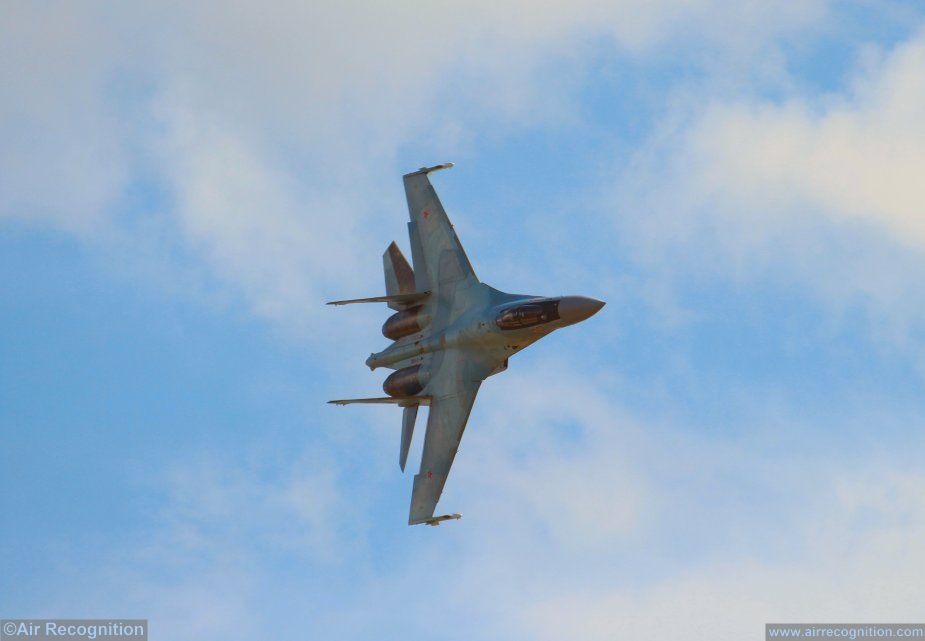Breaking news
Indonesia, Russia finally clinch deal for 11 Su-35 jets.
Russia and the Ministry of Defense (MoD) of Indonesia have sealed a contract for the delivery of Su-35 (NATO reporting name: Flanker-E+) fighter jets to Jakarta, according to Indonesian news papers.

"The Indonesian MoD has signed the contract with Russia to procure the Sukhoi Su-35 'Flanker-E' multirole combat aircraft, it has been confirmed," the analysts of IHS Jane`s confirmed. "The contract was signed on February 14 and features the acquisition of 11 aircraft," they point out, adding that the abovementioned contract has yet to be officially announced by the Indonesian MoD. At the same time, the official spokesperson for the Indonesian Armed Forces (Tentara Nasional Indonesia, TNI) is reported to have confirmed the development in local media, the experts point out.
Russia is expected to deliver the first two Su-35 combat aircraft to Indonesia in October to participate in the country`s annual military parade, the analysts point out.
Unnamed Russian and Indonesian official sources previously told IHS Jane`s that the aforementioned contract worth nearly USD1.1 billion had been under intense negotiations. "However, IHS Jane’s understands that an important sticking point in recent talks was Indonesia’s complex counter-trade requirements, which are framed by local law," the experts add.
The half of the value of the deal will be financed through counter-trade that envisions deliveries of Indonesian-made commodities to Russia. An additional 35% of the contract`s value will be provided by an offset component. The remainder (nearly USD170 million) will be paid by Jakarta in cash.
The Indonesian Air Force (Tentara Nasional Indonesia-Angkatan Udara, TNI-AU) will get the Su-35 multirole combat aircraft to replace its legacy F-5E Tiger II fighters, which were delivered in the 1980s and are planned to be phased out in the years to come.
According to the Military Balance 2017 analytical book issued by the London-based International Institute for Strategic Studies (IISS), the TNI-AU operated eight F-5E Tiger II, four F-5F Tiger II, seven F-16A Fighting Falcon, three F-16B Fighting Falcon, nine F-16C Fighting Falcon, four F-16D Fighting Falcon, two Su-27SK Flanker, three Su-27SKM Flanker, two Su-30MK Flanker and nine Su-30MK2 multirole combat aircraft as of early 2017. Therefore, the Russian-made fighter jets accounted for approximately 31% of the TNI-AU fleet. Once the deliveries of the Su-35 planes to Indonesia have been completed and the legacy Tiger II platforms have been phased out, the share of Russian-originated fighters in service with the TNI-AU will substantially increase to 52%.
Moscow and Jakarta have been negotiating over the acquisition of the Su-35 multirole combat aircraft for several years. In August 2017, the countries signed a memorandum on counter-trade, facilitating the barter component of the deal. IHS Jane`s says that the document outlined the commodities that Russia could receive. The list of the commodities reportedly included palm oil, machinery, rubber, coffee, cocoa, textiles, tea, footwear, processed fish, furniture, copra, paper, and spices. "It is understood that this list has only recently been agreed, facilitating the signing of the procurement contract," the analysts point out.
In October 2017, Russia and Indonesia signed a military-technical protocol, in accordance with which Moscow will support localized maintenance, repair and overhaul (MRO) of the aircraft through the medium of technology transfer. Russia`s efforts in this area will be supported by Indonesian aerospace company PT Dirgantara (PTDI). "However, an official from PTDI confirmed to IHS Jane’s at the Singapore Airshow 2018 that the scope of this MRO collaboration had not yet been finalized," the analysts of the think-tank add.
It should be mentioned that the Su-35 deal is regulated by Indonesia`s Defence Industry Law 2012 (DIL 2012); it is also known as Law 16) that stipulates that the share of counter-trade and offset deals should account for no less than 85% of the main contract`s value.



















